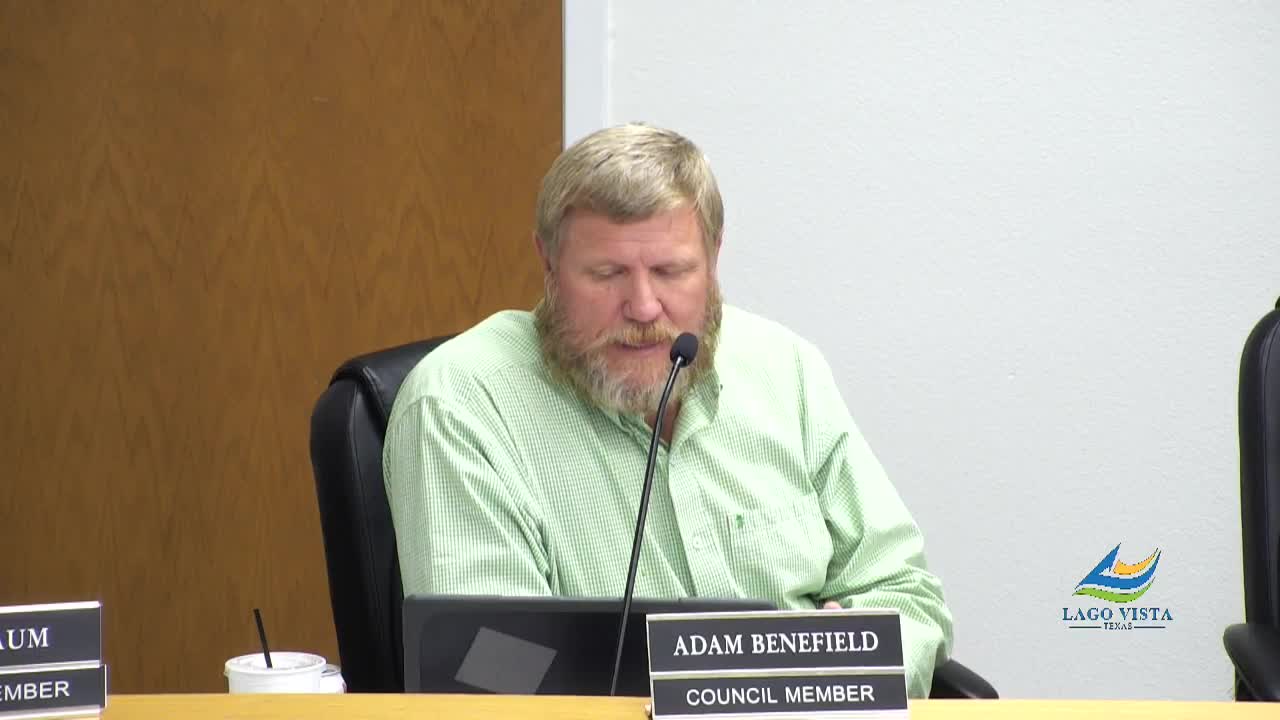Lago Vista City Council reviews short term rental ordinance for compliance and enforcement
October 02, 2025 | Lago Vista, Travis County, Texas
This article was created by AI summarizing key points discussed. AI makes mistakes, so for full details and context, please refer to the video of the full meeting. Please report any errors so we can fix them. Report an error »

In a recent meeting of the Lago Vista City Council, discussions centered around the implementation of new software aimed at tracking short-term rental (STR) activity within the city. The software, which cost the city $30,000 annually, revealed that there are currently 221 active STR owners in Lago Vista. Alarmingly, 173 of these properties are operating without the necessary permits or licenses, indicating that nearly 40% of STR owners may be evading compliance with local regulations.
The council members expressed concern over the potential loss of nearly $500,000 in hotel occupancy tax (HOT) revenue due to these non-compliant rentals. To address this issue, city officials are working on drafting an ordinance that would establish clearer processes for STR permits, including initial fees, annual renewals, and safety inspections. The proposed ordinance aims to ensure that STRs are properly managed and that the city can effectively collect the required taxes.
During the meeting, council members debated the need for more data before finalizing the ordinance. Some expressed skepticism about rushing into new regulations without fully understanding the current landscape of STRs and their impact on the community. They emphasized the importance of gathering comprehensive data on STR usage and enforcement actions taken by code enforcement officers.
Residents also voiced their concerns regarding the proposed ordinance. Some argued that the regulations could disproportionately burden local homeowners who occasionally rent out their properties to help with expenses. Suggestions were made for a tiered fee structure based on usage, allowing those who rent less frequently to pay lower fees.
The council acknowledged the need for a balanced approach that protects residents while ensuring compliance and revenue generation. They agreed to revisit the draft ordinance in future meetings, with a focus on refining the proposed regulations based on community feedback and further data analysis.
As Lago Vista continues to navigate the complexities of short-term rentals, the city council remains committed to finding a solution that addresses both the needs of residents and the financial health of the community. The next steps will involve further discussions and adjustments to the ordinance, with the aim of presenting a finalized version by early November.
The council members expressed concern over the potential loss of nearly $500,000 in hotel occupancy tax (HOT) revenue due to these non-compliant rentals. To address this issue, city officials are working on drafting an ordinance that would establish clearer processes for STR permits, including initial fees, annual renewals, and safety inspections. The proposed ordinance aims to ensure that STRs are properly managed and that the city can effectively collect the required taxes.
During the meeting, council members debated the need for more data before finalizing the ordinance. Some expressed skepticism about rushing into new regulations without fully understanding the current landscape of STRs and their impact on the community. They emphasized the importance of gathering comprehensive data on STR usage and enforcement actions taken by code enforcement officers.
Residents also voiced their concerns regarding the proposed ordinance. Some argued that the regulations could disproportionately burden local homeowners who occasionally rent out their properties to help with expenses. Suggestions were made for a tiered fee structure based on usage, allowing those who rent less frequently to pay lower fees.
The council acknowledged the need for a balanced approach that protects residents while ensuring compliance and revenue generation. They agreed to revisit the draft ordinance in future meetings, with a focus on refining the proposed regulations based on community feedback and further data analysis.
As Lago Vista continues to navigate the complexities of short-term rentals, the city council remains committed to finding a solution that addresses both the needs of residents and the financial health of the community. The next steps will involve further discussions and adjustments to the ordinance, with the aim of presenting a finalized version by early November.
View full meeting
This article is based on a recent meeting—watch the full video and explore the complete transcript for deeper insights into the discussion.
View full meeting
